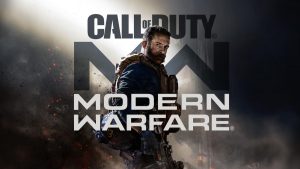Stories of Service: Shane Ortega

Shane Ortega
Native Americans serve more than any demographic of people.
Shane Ortega is proud of many things, but two in particular: his indigenous heritage – he is Haudenosaunee-Tuscarora – and his military service.
He is the son of two military veterans – his mother served in the Army and the Navy, and his father served in the Navy. “Native Americans serve more than any demographic of people,” Shane notes.
Enlisting in the Marine Corps in 2004 both honored his family history, and represented “a way to stay out of trouble,” as a brown-skinned kid surrounded by the turbulence of racism in the rural South. The military also presented Shane opportunities for education and professional experience he might not otherwise have, as it does for many kids of color.
In the military, Shane did much more than stay out of trouble – he excelled. In the Marine Corps, he was assigned to a logistics unit. Since Shane enlisted as female, he was barred from combat service, but still volunteered for two deployments to support infantry units in Iraq. He also volunteered to become a bomb technician, one of the most dangerous and psychologically demanding roles in the armed services. “You have to have nerves of steel,” he said. Though Shane never had to use those skills, he became a flight engineer, and was deployed to Afghanistan.
The Native concept of two-spirit helped Shane from an early age understand who he is. “Two-spirit is a sacred way to our indigenous peoples,” Shane says. “We have had it from time immemorial. I was raised by my great grandma and grandma in these ways and by my elders now and mentors. It is the way I walk between the traditional and modern – between worlds – and do the work of both the masculine and feminine, helping restore balance.”
In 2009, then serving in the U.S. Army, Shane openly started taking testosterone with the knowledge of his Army physician. He took other steps to transitioning, though the Army continued to designate him “female.” Shane co-founded the group SPART*A, which supports transgender people in the military. He felt a responsibility to be open, and to serve as an example and a resource for other transgender service members.
Though he was by then retired, with the rank of Staff Sargent, the July 2017 announcement of the transgender military ban still impacted him. “I was really worried about what this means for service members,” he says, “and for every transgender person.”
In addition to that, he says, the military itself loses when it excludes transgender people from service. “It literally loses battlefield advantage, because it’s not the strongest people who win the day, but those with the biggest hearts. Bravery is the ability to be vulnerable, to risk it all. 90 percent of what you do in war has nothing to do with killing the enemy. After battle, you have to repair your unit, and you can’t do that if you don’t understand other people; and you can’t understand other people without the participation of all kinds of people.”
Shane is now studying native health methods with his uncle while pursuing a public health degree. He is also taking the Shoshone Language program and planning to take the tribal law Bar exam in March. With his training, he hopes to help indigenous military veterans heal from their service, and thrive in the world.
“I think many people right now hear a voice that says we need change. We need to think seven generations ahead. If we don’t listen to that voice and act on it, what will our legacy be?”




